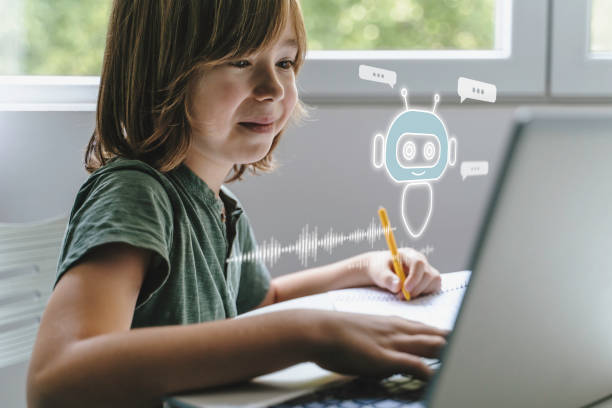AI in education is its ability to personalize learning experiences. Through sophisticated algorithms and machine learning, AI systems can analyze a student’s learning patterns, strengths, and weaknesses. This enables the creation of personalized learning paths tailored to individual needs, ensuring that students receive content and activities best suited to their learning pace and style. Adaptive learning platforms powered by AI can adjust the difficulty level of tasks in real-time, keeping students engaged and motivated.
Improving Educational Accessibility
AI is also breaking barriers to education by enhancing accessibility. For students with disabilities, AI-powered tools like speech-to-text, text-to-speech, and image recognition software facilitate a more inclusive learning environment. These technologies assist students with different learning needs, providing them with the support necessary to thrive academically.
Facilitating Intelligent Tutoring Systems
Intelligent Tutoring Systems (ITS) powered by AI offer personalized guidance to students, simulating one-on-one interactions with human tutors. These systems analyze a student’s responses to questions and tasks, identifying areas of struggle and providing targeted feedback and additional resources. It not only reinforces learning but also adapts to the student’s progress, continually refining their approach to maximize educational outcomes.
Enabling Predictive Analytics for Student Success
AI’s predictive analytics capabilities have proven instrumental in identifying students at risk of falling behind academically. By analyzing vast amounts of data, AI algorithms can forecast potential issues based on past performance, attendance, and other factors. Educators can intervene early, offering additional support and resources to students who might otherwise have been overlooked.
Challenges and Considerations
While the integration of AI in education holds immense promise, it’s not without challenges. Privacy concerns regarding the collection and use of student data, the need for teacher training to effectively utilize AI tools, and the potential for exacerbating educational inequalities are among the key considerations.
Conclusion
AI’s integration into education heralds a new era of personalized, adaptive, and inclusive learning experiences. By leveraging AI-powered tools and systems, educational institutions can cater to diverse learning needs, improve student outcomes, and create more equitable learning environments.
Frequently Asked Questions(FAQ’s)
[sc_fs_faq html=”true” headline=”h2″ img=”” question=”How is AI improving personalized learning?” img_alt=”” css_class=””] AI analyzes individual learning patterns to create personalized learning paths, adapting content to suit each student’s pace and style. [/sc_fs_faq] [sc_fs_faq html=”true” headline=”h2″ img=”” question=”What challenges does AI face in education?” img_alt=”” css_class=””] Challenges include privacy concerns, the need for teacher training, and the risk of widening educational inequalities. [/sc_fs_faq] [sc_fs_faq html=”true” headline=”h2″ img=”” question=”Can AI help identify struggling students early?” img_alt=”” css_class=””] Yes, AI’s predictive analytics can identify students at risk by analyzing data on performance and attendance, enabling early interventions. [/sc_fs_faq]